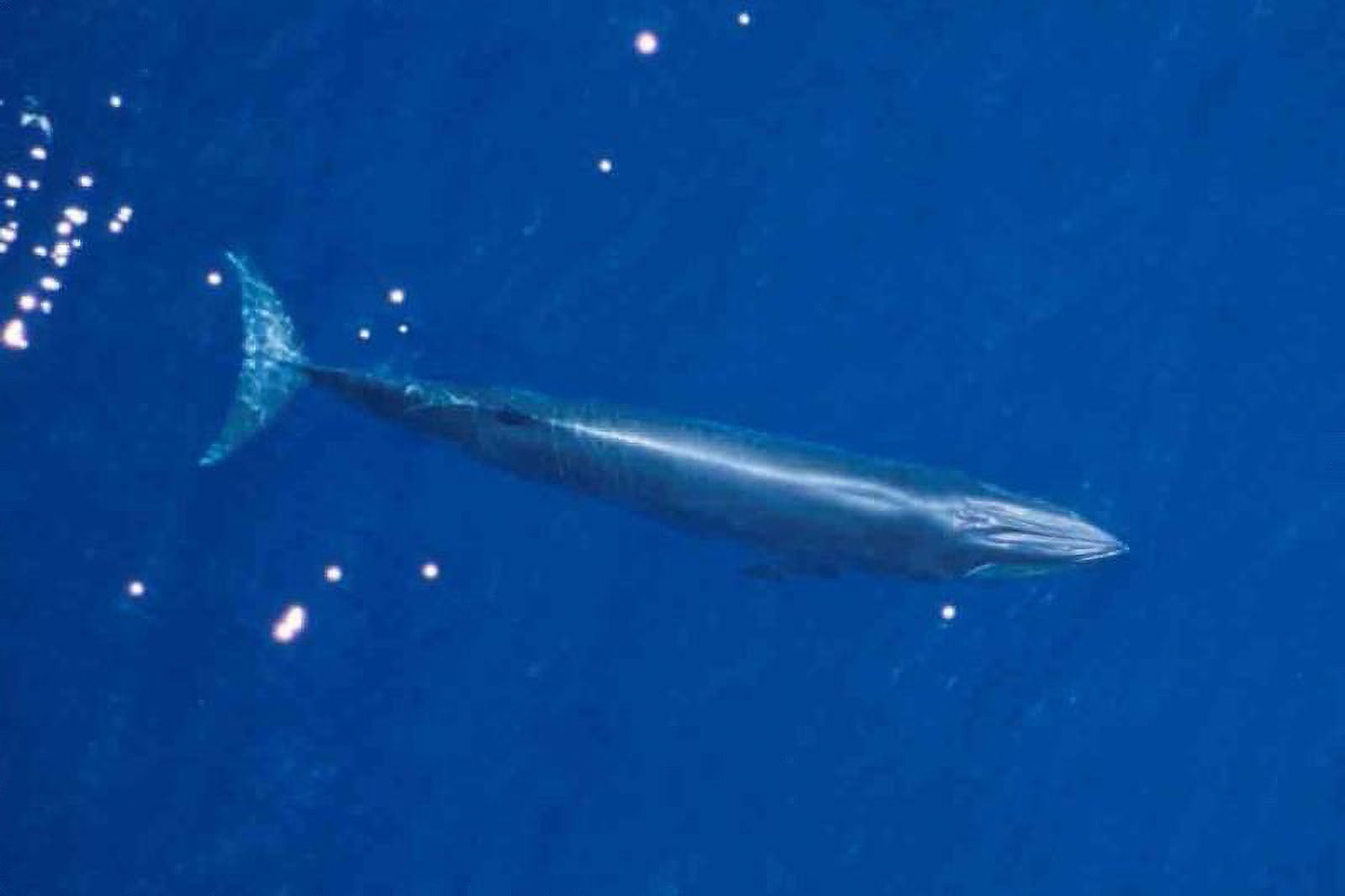House Republican Legislation Would Gut Protections for Critically Endangered Gulf of Mexico Rice’s Whales
H.R. 6008 would leave in place a Trump-era biological opinion that fails to sufficiently protect Rice’s whales, leaving them highly vulnerable to oil spills and vessel strikes
Contact
House Republicans will consider a bill today introduced by Rep. Garret Graves (R-La.) that could prohibit vital Endangered Species Act protections for critically endangered Gulf of Mexico Rice’s whales. There are about 50 of the whales left in the entire world.
H.R. 6008 would leave in place a Trump-era biological opinion that fails to sufficiently protect Rice’s whales, leaving them highly vulnerable to oil spills and vessel strikes. The legislation would also create unreasonable procedural hurdles designed to prevent the National Marine Fisheries Services from enacting science-based protections for Rice’s whales and give unprecedented access to oil and gas industry regulators.
“It’s tragic that Rep. Graves and other Republicans want to risk the extinction of these magnificent whales just so fossil fuel companies can make a little bit more money,” said Brett Hartl, government affairs director at the Center for Biological Diversity. “The oil and gas industry has already caused enormous environmental damage in the Gulf of Mexico. I’m horrified that the industry’s political benefactors would forego common-sense conservation measures and add wiping out Rice’s whales to this disgraceful environmental legacy.”
The House Natural Resources Committee’s Subcommittee on Water, Wildlife and Fisheries has scheduled a hearing on the proposed legislation at 2:15 p.m. today in Room 1334, Longworth House Office Building.
The legislation’s primary beneficiary would be the fossil fuel industry, which opposes efforts to protect Rice’s whale habitat from expanded oil and gas leasing. The industry has stated its opposition to slowing ship speeds in key Rice’s whale habitat in the Gulf of Mexico and has opposed excluding the whales’ habitat from oil and gas extraction. The habitat runs along the continental shelf break and represents only about 8% of the total acres available for leasing.
“Why has this bill been introduced? Because companies that made 50 billion dollars in profits last year can’t be bothered to slow down in the animal equivalent of a school crossing,” said Michael Jasny, director of marine mammal protection at the Natural Resources Defense Council. “Rice’s whales are among the Gulf’s most magnificent creatures, found nowhere else on the planet; they’re part of what makes the Gulf special. If you can’t even try to save these whales, it’s hard to know what can be saved.”
The Gulf of Mexico Rice’s whale is the only large whale species that lives year-round in United States waters. Oil and gas extraction is one of the main threats to the whales’ existence.
“These baseline protections for the Rice’s whale are quite literally the least we could be doing to save the species from extinction,” said Earthjustice attorney Steve Mashuda. “Meanwhile, the government is still offering 67 million acres of the Gulf for expanded leasing. These oil companies, which already possess thousands of undeveloped leases, are redefining greed. They’re looking at the full glass after one sip and calling it empty.”
Because the whales swim close to the surface, they are especially at risk of vessel strikes. Oil and gas seismic blasting also interferes with the sonar that the whales use to communicate, care for their young, and find mates. The National Marine Fisheries Service has concluded that the death of even one female whale jeopardizes the species’ continued existence.
“This bill is yet another shot aimed at gutting the science-based protections required by the Endangered Species Act and Marine Mammal Protection Act,” said Jane Davenport, senior attorney at Defenders of Wildlife. “It’s always a bad idea for legislators to meddle in ongoing litigation and administrative processes, but it’s especially shameful for them to be playing God with the very existence of an entire species.”
“The Rice’s whale is critically endangered; scientists report that the loss of even one whale could mean extinction for this majestic species,” said Bradley Williams, associate director of legislative and administrative advocacy for the Sierra Club. “We must do everything we can to protect these whales and their habitat from the devastating effects of oil and gas leasing in the Gulf, including reducing vessel speeds and ending new leasing, especially in prime Rice’s whale habitat.”
In a 2022 letter to the Biden administration, 100 scientists warned that Rice’s whales are critically imperiled and that without urgent conservation actions to reduce deaths and alleviate stressors we face the first human-caused extinction of a whale species in history.

Additional Resources
About Earthjustice
Earthjustice is the premier nonprofit environmental law organization. We wield the power of law and the strength of partnership to protect people's health, to preserve magnificent places and wildlife, to advance clean energy, and to combat climate change. We are here because the earth needs a good lawyer.